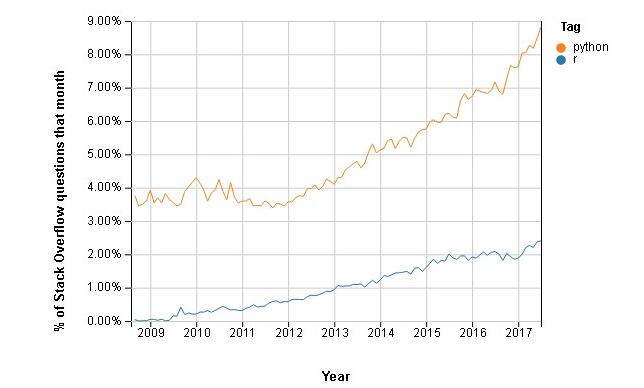使用Python生成随机密码的示例分享
生成随机密码这件事情用python来干确实相当的方便,优美的string方法加上choice简直是绝配
make_password.py
###简单几行代码执行即可生成记不住的字符串### $ python make_passwd.py DLrw9EiT Qs4Wm84q RQwl4L2L u9g0LgwW jHPtYdyU ...
$ python make_passwd.py DLrw9EiT Qs4Wm84q RQwl4L2L u9g0LgwW jHPtYdyU ...
代码如下——注释比代码长
#!/usr/bin/python #--coding:utf-8--# #------------------------------------------------------------------------------- # Name: make_passwd # # Author: LiuSha # # Created: 28/12/2014 # Copyright: (c) WDZJ-SA 2014 #------------------------------------------------------------------------------- from random import choice import string def Makepass(length=8, chars=string.letters+string.digits): return ''.join([choice(chars) for i in range(length)]) if __name__ == '__main__': for i in range(10): print Makepass() ##下例基本上就是这个小脚本的所有工作核心了,使用random模块的choice方法取string模块生成的字符串## >>> string.letters 'abcdefghijklmnopqrstuvwxyzABCDEFGHIJKLMNOPQRSTUVWXYZ' >>> string.digits '0123456789' >>> choice(string.digits) '4' >>> choice(string.letters) 'T' ##有关生成器可参考:http://www.ipython.me/python/python-generator.html## #!/usr/bin/python #--coding:utf-8--# #------------------------------------------------------------------------------- # Name: make_passwd # # Author: LiuSha # # Created: 28/12/2014 # Copyright: (c) WDZJ-SA 2014 #------------------------------------------------------------------------------- from random import choice import string def Makepass(length=8, chars=string.letters+string.digits): return ''.join([choice(chars) for i in range(length)]) if __name__ == '__main__': for i in range(10): print Makepass() ##下例基本上就是这个小脚本的所有工作核心了,使用random模块的choice方法取string模块生成的字符串## >>> string.letters 'abcdefghijklmnopqrstuvwxyzABCDEFGHIJKLMNOPQRSTUVWXYZ' >>> string.digits '0123456789' >>> choice(string.digits) '4' >>> choice(string.letters) 'T' ##有关生成器可参考:http://www.ipython.me/python/python-generator.html##
生成一些人似乎能好记一些的密码(Qs4Wm84q这种密码似乎除了复制粘贴没有别的选择,话说前年我使用shell生成的类似的密码给ldap做默认密码,我当时公司就真有员工把这样的密码背下来了,现在想想真心是厉害~~~)。
##这样看起来是比上面的好记一点了吧,但需要提供一个字典文件## $ python make_dictpass.py 1 8 1 ipythosd $ python make_dictpass.py nahontchen chenyibfeo ipythoniue coreostche ... $ python make_dictpass.py 1 8 1 ipythosd $ python make_dictpass.py nahontchen chenyibfeo ipythoniue coreostche ...
代码如下
#!/usr/bin/python
#--coding:utf-8--#
#-------------------------------------------------------------------------------
# Name: make_dictpass
#
# Author: LiuSha
#
# Created: 28/12/2014
# Copyright: (c) WDZJ-SA 2014
#-------------------------------------------------------------------------------
import random
import string
class passwd():
data = open('./word.txt').read().lower()
def renew(self, n, maxmem=3):
self.chars = []
for i in range(n):
randspot = random.randrange(len(self.data))
self.data = self.data[randspot:] + self.data[:randspot]
where = -1
locate = ''.join(self.chars[-maxmem:])
while where < 0 and locate: where = self.data.find(locate) locate = locate[1:] c = self.data[where+len(locate)+1] if not c.islower(): c = random.choice(string.lowercase) self.chars.append(c) def __str__(self): return ''.join(self.chars) if __name__ == '__main__': import sys ##如果带参数的话可以定义生成密码的次数,长度,追溯记录## if len(sys.argv) > 1:
dopass = int(sys.argv[1])
else:
dopass = 8
if len(sys.argv) > 2:
length = int(sys.argv[2])
else:
length = 10
if len(sys.argv) > 3:
memory = int(sys.argv[3])
else:
memory = 3
onepass = passwd()
for i in range(dopass):
onepass.renew(length,memory)
print onepass
##字典文件(可以是各种单词的组合)## $ cat word.txt chenyi itchenyi python ipython coreos coreos.me ipython.me
#!/usr/bin/python
#--coding:utf-8--#
#-------------------------------------------------------------------------------
# Name: make_dictpass
#
# Author: LiuSha
#
# Created: 28/12/2014
# Copyright: (c) WDZJ-SA 2014
#-------------------------------------------------------------------------------
import random
import string
class passwd():
data = open('./word.txt').read().lower()
def renew(self, n, maxmem=3):
self.chars = []
for i in range(n):
randspot = random.randrange(len(self.data))
self.data = self.data[randspot:] + self.data[:randspot]
where = -1
locate = ''.join(self.chars[-maxmem:])
while where < 0 and locate: where = self.data.find(locate) locate = locate[1:] c = self.data[where+len(locate)+1] if not c.islower(): c = random.choice(string.lowercase) self.chars.append(c) def __str__(self): return ''.join(self.chars) if __name__ == '__main__': import sys ##如果带参数的话可以定义生成密码的次数,长度,追溯记录## if len(sys.argv) > 1:
dopass = int(sys.argv[1])
else:
dopass = 8
if len(sys.argv) > 2:
length = int(sys.argv[2])
else:
length = 10
if len(sys.argv) > 3:
memory = int(sys.argv[3])
else:
memory = 3
onepass = passwd()
for i in range(dopass):
onepass.renew(length,memory)
print onepass
##字典文件(可以是各种单词的组合)## $ cat word.txt chenyi itchenyi python ipython coreos coreos.me ipython.me
